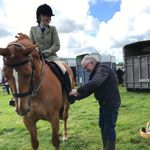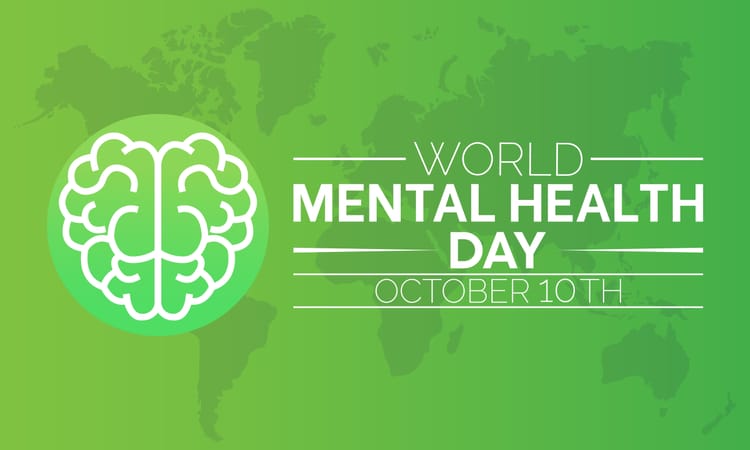Beneath the Helmet: Is Mental Health Support Failing Women in the Saddle?

She can ride three horses before sunrise, manage a yard, travel the circuit and still post clean plaits to Instagram. But ask her how she’s actually doing, and the answer’s in the silence.
Mental health in the equestrian world is still being treated like a side note — and when it comes to women, the silence is louder. We're not short of stories. We're short of safe spaces, honest dialogue, and support systems that don’t just write off burnout as 'part of the lifestyle'. The truth? There are too many women breaking down behind stable doors because no one ever asked if they were alright — and even if they did, there’s no clear path to help.
This industry is physically demanding, financially brutal and emotionally relentless. And for women, it carries an extra weight — the pressure to be tough, composed, likeable, photogenic, competitive and maternal all at once. It's a cocktail for collapse. Whether you're a professional rider, a working student, a yard manager or a mother juggling it all, the emotional load is constant. We glorify grit, we reward silence, and we only talk about mental health when someone breaks.
There’s no shortage of data pointing to the crisis. According to Mind, women in rural and isolated working environments are significantly more likely to experience anxiety and depression — and equestrianism ticks every box. Long hours, low pay, high stakes, constant travel, and often no HR department in sight.
A 2023 British Grooms Association survey found that over 60% of grooms experienced stress or anxiety at work, and most said they had no idea where to turn for mental health support.
Unsurprisingly, many just leave the industry — not because they’ve fallen out of love with horses, but because their wellbeing has been shattered.
And we haven’t even scratched the surface when it comes to eating disorders, which remain one of the most under-discussed epidemics in equestrian sport.
Weight restrictions, aesthetic expectations, body commentary — it’s all part of the job, and often packaged as “just the way it is”. Never mind that it’s dangerous, outdated, and slowly breaking people down. If you’re a female jockey, rider, or even just showing up for a lesson in tight breeches, chances are your body has been discussed more than your technique. That’s not normal. That’s toxic.
But the worst part?
The silence.
The normalisation.
The “you’re tough, you’ll manage” culture.
That’s what keeps women suffering in silence. You’re not weak, you’re not soft, and no, needing help doesn’t make you any less capable in the saddle. But the industry still pushes this outdated archetype of the unflappable horsewoman — always calm, always strong, always fine. It’s rubbish. We need to stop performing wellbeing and start protecting it.
So what needs to change? First, visibility.
If we don’t start talking publicly — in magazines, in team meetings, on social media — then the stigma remains intact. Women need to hear other women saying, “I struggled too, and I got support.”
Not whispered in corners, but said out loud, without shame. There should be mental health check-ins just like we have vettings for horses. You wouldn’t ignore a lame leg on your gelding — so why are we ignoring burnout in our grooms?
We need proper safeguarding protocols in every equestrian institution. That means confidential reporting, access to funded counselling, and mandatory mental health training for anyone in a position of leadership — from coaches to yard owners.
Just telling people to “speak up” isn’t enough if there’s nowhere safe to speak to. We also need independent, well-publicised points of contact — not just "go talk to your boss" when your boss is part of the problem.
Equestrian charities and governing bodies have to do more than post about Mental Health Awareness Week once a year. They need to fund it, prioritise it, and make it part of the everyday conversation. The British Horse Society and the FEI have started dipping a toe into wellbeing work — but is it enough? We need partnerships with real mental health organisations, and we need those resources tailored to women in the field.
And let’s not forget the power of peer support. Women need networks that aren’t just for professional gain, but for honest conversation — where burnout isn’t seen as weakness, but as a red flag to take seriously. These spaces need to be facilitated, not just expected to appear out of nowhere. Because community doesn’t fix everything, but it’s a damn good place to start.
Here’s the call: check in on the women you ride with. Share your story. Demand that your yard, your team, your federation does better. If you’re managing a team, make mental health part of the culture. If you're a coach, build your riders up — don’t grind them down. If you're struggling right now — talk to someone. Talk to us.
The sport we love is built on care — for horses. It’s time we extended the same to the women holding the lead ropes, mucking the stables, jumping the fences and holding it all together.
Feeling this?
👉 Read: The Weight Debate — Stereotypes Are Not Standards
📩 Want to share your story anonymously? DM us or email muireann@equitas.ie — we’re listening.





